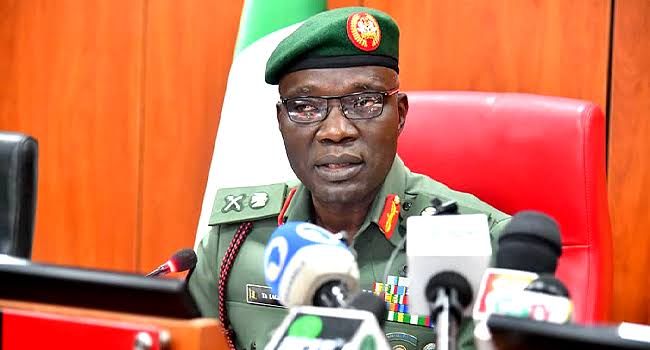Nigeria’s Chief of Army Staff (COAS), Lt.-Gen Taoreed Lagbaja has said that securing a country as wide as Nigeria requires harnessing the support of the citizens.
Lagbaja, who was represented by the Chief of Administration (Army), Maj.-Gen. Jimmy Akpor, made this known at the maiden edition of the Nigerian Army Human Rights Seminar, on Wednesday in Abuja.
He stated that in securing Nigeria properly, the support of the citizens is necessary since some operations are carried out within civilian populated areas.
He explained that the prevailing security challenges had necessitated the deployment of troops to various theaters of operations across the country.
“These deployments involve kinetic and non-kinetic approaches that require collaboration between security agencies and all well-meaning individuals and organisations.
“I wish to state that securing a country within the ambit of the contemporary security environment involve harnessing the efforts of citizens in a national approach because the operations are conducted within civilian populated areas.
“Hence, the seminar was conceptualised to engage organisations, security agencies, media and other stakeholders involved in human rights advocacy and the protection of civilians in conflict areas on the issues relating to human rights during conflicts.
“The protection of civilians and their basic rights require special attention as it takes up a lot of field commanders’ time.
“This aspect of warfare and conflict management requires the harnessing of the potentials of other actors within the multidimensional operating environment.
“Hence, the articulation of my command philosophy that seeks to transform the Nigerian army into a well-trained and highly motivated organisation towards achieving our constitutional responsibilities within a joint environment taking into cognizance the uniqueness of the contemporary environment, which is joint.
“The joint environment in this context includes all actors in the theatres of operation, including non-governmental organisations and human rights groups,” he said.


